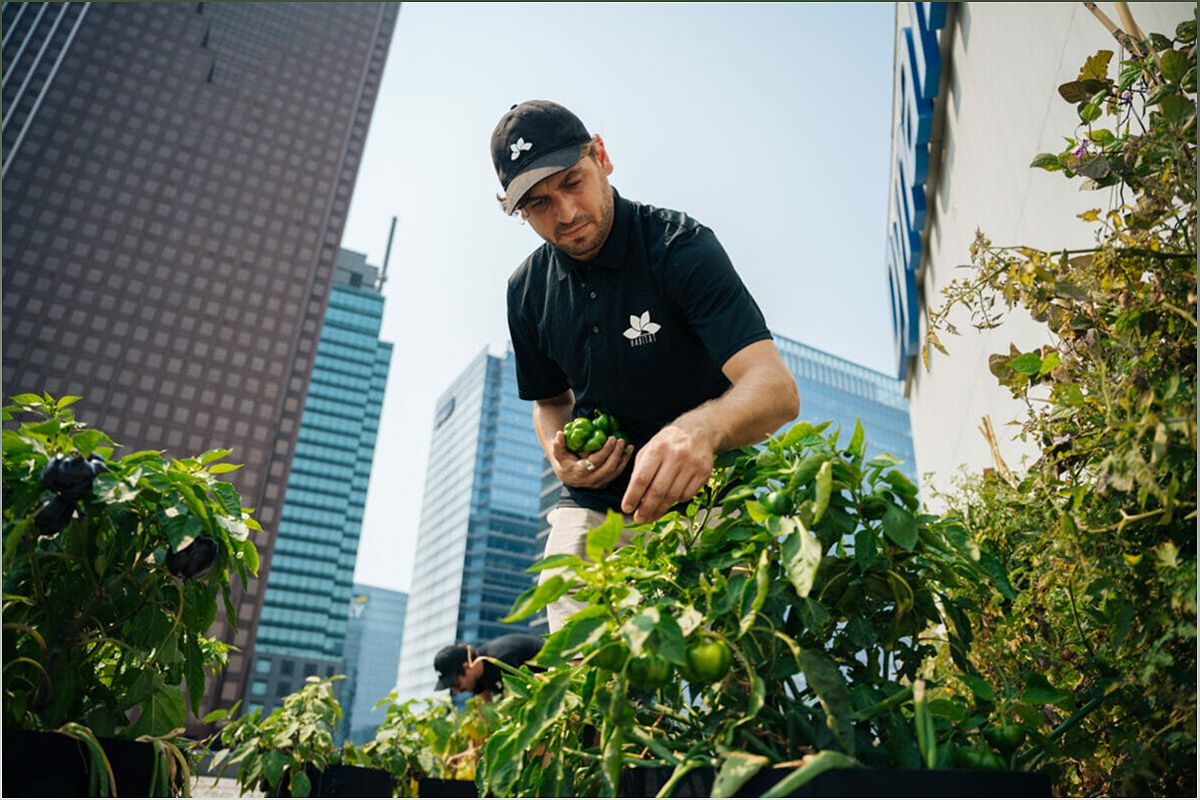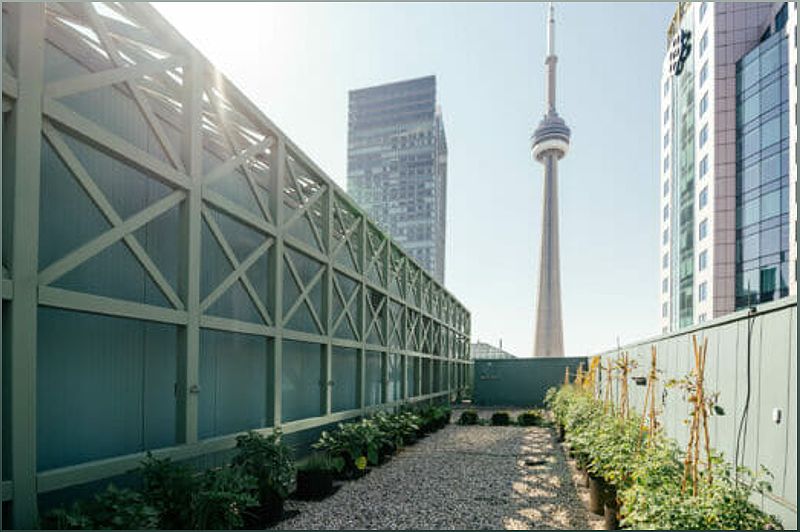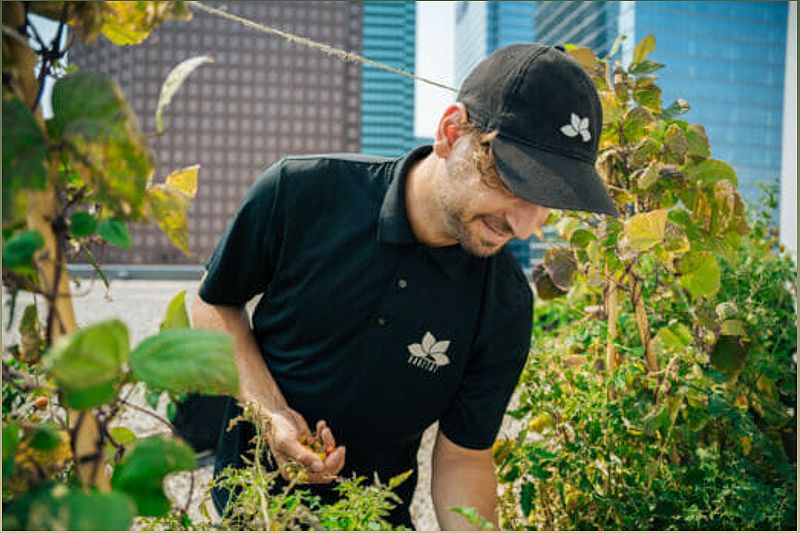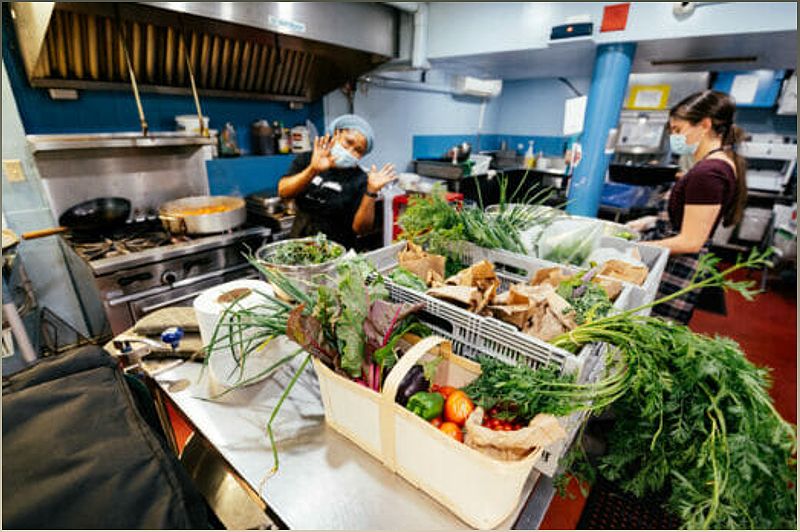Learn how MicroHabitat is revolutionizing urban farming in North American cities, bringing sustainability, community engagement, and increased property values through their innovative modular farms.
The Rise of Urban Farming in North American Cities
Urban farming is gaining popularity in North American cities as more people recognize its social and environmental benefits. However, accessing suitable land and turning a profit remain significant barriers. Alexandre Ferrari-Roy, founder and CEO of MicroHabitat, has been working for nearly a decade to overcome these challenges and create a sustainable business model for urban agriculture.

( Credit to: Modernfarmer )
Initially, Ferrari-Roy tried guerrilla-style urban farming on vacant spaces at McGill University’s Macdonald Campus in Montreal. However, this approach faced difficulties, prompting him to change his strategy. Today, MicroHabitat offers urban farming as a service to property owners and managers, helping them increase their property values while promoting sustainability and community engagement.

( Credit to: Modernfarmer )
Modular Farms: A Solution for Urban Agriculture
MicroHabitat has partnered with corporations and multinational real estate firms, such as GWL Realty Advisors and Ivanhoé Cambridge, to install modular farms on their properties. These farms can be found on the roofs of historic landmarks, like Toronto’s Canada Life Building, and in Manhattan’s largest apartment complex, StuyTown. The company has expanded from a few locations in downtown Montreal to 140 farms in 2022, and they plan to install farms in six additional North American cities in the upcoming season.

( Credit to: Modernfarmer )
To design, install, and maintain their farms, MicroHabitat’s urban farmers work with any outdoor space available to their clients. Their system is adaptable to various surfaces as long as there is exposure to sunlight, access to water, and a safe access point. The company’s most popular package includes 30 lightweight geotextile pots that can produce up to 350 pounds of organic produce throughout the season. The farms feature a diverse range of locally sourced heirloom and hybrid crops, including tomatoes, eggplant, peppers, cucumbers, onions, leafy greens, edible flowers, and herbs.

( Credit to: Modernfarmer )
Community Engagement and Sustainability
MicroHabitat’s approach to urban farming goes beyond just growing food. They prioritize community engagement and sustainability. Clients’ internal communities are invited to participate in weekly harvests, educational tours, and hands-on gardening experiences. Additionally, MicroHabitat donates a significant portion of the produce to local food banks, contributing to the fight against food insecurity.
The COVID-19 pandemic presented a significant challenge for MicroHabitat. Many projected clients pulled out, and the team expected a difficult year. However, all existing clients continued with their projects, highlighting the importance of community-focused initiatives during challenging times. This resilience and commitment to helping others have allowed MicroHabitat to thrive.
The Future of Urban Farming with MicroHabitat
Looking ahead, MicroHabitat plans to use technology, such as interactive kiosks, to enhance the experience at each farm. They believe the potential for urban farming is limitless and are excited to continue expanding their reach. Through their efforts, MicroHabitat aims to make cities more productive, sustainable, and appreciative of the environment they inhabit.
